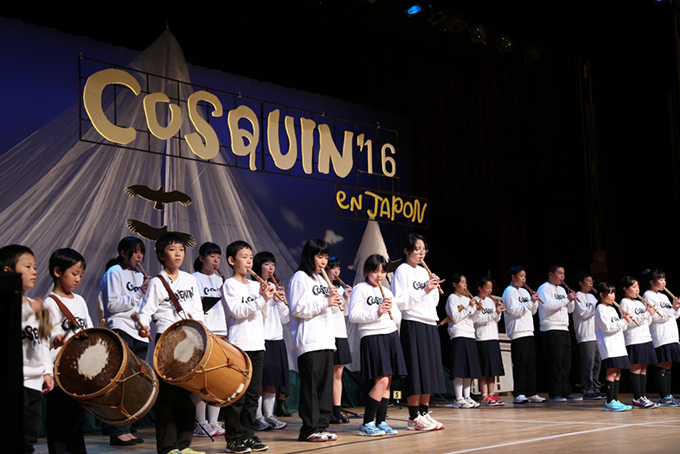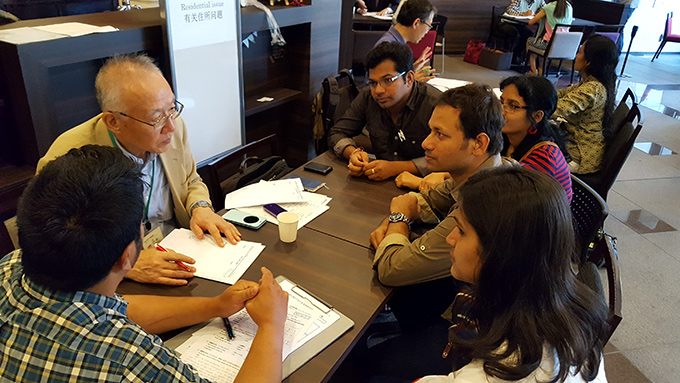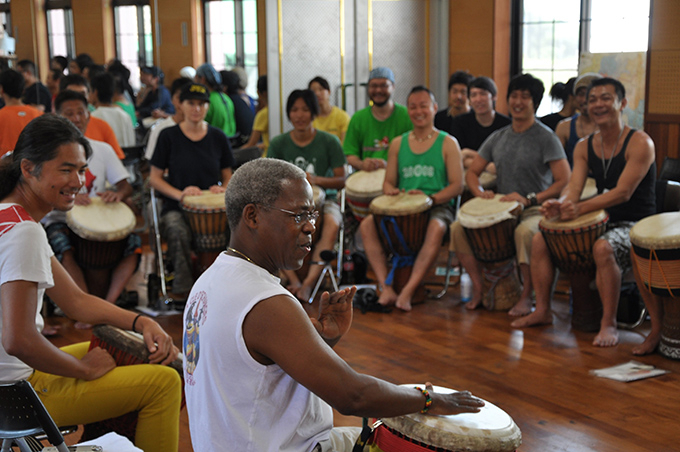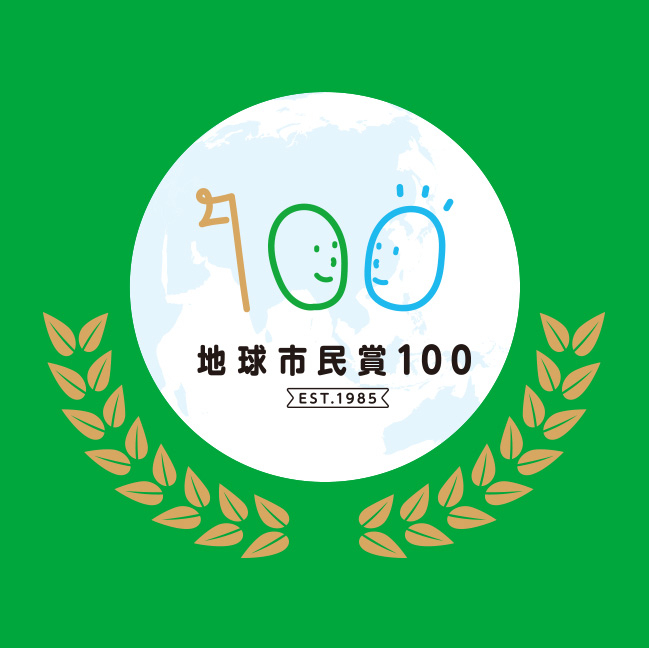The Bonds between Regions and the World that are Fostered by Global Citizens - On Overseeing the Japan Foundation Prizes for Global Citizenship Program
Sachiko Kanno (Arts planner / Researcher; AIR Lab)
From the Japan Foundation Prizes for the Promotion of Community-Based Cultural Exchange to the Prizes for Global Citizenship
The Japan Foundation Prizes for Global Citizenship were founded in 1985 under the name of the Japan Foundation Prizes for the Promotion of Community-Based Cultural Exchange. The Japan Foundation was established in 1972. At the time, the Japanese economy was enjoying ongoing growth, and "international," "culture," and "regions" were the key words of the times. In the 1980s, regional municipalities began to engage in promoting cultural administration. Various cultural facilities, such as civic halls, art galleries, and museums, were built in each region, and municipalities began inviting artists from overseas and holding international cultural events, and this saw international cultural exchange take root throughout the country. In 1987, the "Guidelines for International Exchange in Local Public Bodies" was issued, and the internationalization of the regions progressed further as international exchange associations were set up across the country. However, many of those who were in charge lacked knowledge, information, or personal connections relating to cultural affairs overseas. Because they also lacked expertise, a large number of inquiries and consultations came to be directed at the Foundation. It was against this backdrop that the Prizes for the Promotion of Community-Based Cultural Exchange began to be set up as an attempt by the Foundation to encourage the various international cultural exchange projects taking place nationwide.
Subsequently, cross-border exchanges between citizens gained increasing momentum, and in the latter half of the 1990s, the concept of the civil society and the non-profit sector began to be actively discussed. Around the same time, notions that the Earth's resources and environment are limited and that we all inhabit the same Earth as global citizens had grown familiar. Therefore the name of the prize was amended to the Prizes for Global Citizenship, so even the evolution of the prize's name reflects the history of international cultural exchange.
The significance and potential of the Prizes for Global Citizenship
In fiscal 2016, the number of organizations that won a Prize for Global Citizenship reached 100, and also a commemorative publication was issued. Within that, although there are also organizations whose role has ended and which have ceased or suspended their activities, the majority of them are for the most part ones that are active even now as cores of each region, and their representatives are also leaders in their respective fields. In the course of the selection process, staff members from the Japan Foundation always visit the places where candidate organizations operate their activities to undertake on-site research and hear firsthand from the organizations' representatives, and from members who are involved in the organizations in various ways as volunteers and so on. However, what comes across clearly is that in all cases, the organizations are proud of the regions they are active in and have deep feelings for there. Perhaps as a result of those feelings having been conveyed, the selection committee members held rigorous discussions to select the winners. Naturally, the activities of the organizations that are ultimately selected to receive the prizes are magnificent, but even among those that regrettably are not chosen for a prize, a large number of superb activities are being carried out. In fiscal 2016, three organizations, namely Fukushima Prefecture's Norte Japón (Cosquín en Japón Executive Committee), Kumamoto Prefecture's Kumamoto International Foundation, and Kagoshima Prefecture's Iōjima District Board, were selected. However in all cases, these organizations' efforts to transform regions and try to bring forth new culture are engendering empathy and impressing many individuals, and this is what they have been highly evaluated for, I believe.
The history of international cultural exchange is built on these global citizens' efforts to genuinely transcend borders and differences in culture to exchange and share ideas and information and think and act together. Understandably, it is not as if international exchange only brings about positive outcomes, and the regrettable reality is that various confrontations and disputes are occurring all over the world. That being the case, in what way can people of different cultural backgrounds coexist together on this finite Earth while respecting one another's different values, cultures, and beliefs? The activities of the 100 organizations that have been awarded a Prize for Global Citizenship contain a wealth of wisdom, ideas, and hints for changing this world and for changing Japan's regions as well.
This prize program's job does not end with the task of just awarding the prizes. The significance of this program, and simultaneously the challenge it faces going forward, lies in informing as many people as possible about the activities of the prize-winning organizations that are creating the Earth of the future as global citizens.
 Sachiko Kanno
Sachiko Kanno
Sachiko Kanno took up her present position after working at the British Council and the Japan Foundation. While working at the Japan Foundation, she was involved in running the Japan Foundation Prizes for Global Citizenship program for supporting international cultural exchange nationwide, as well as managing a large number of events such as symposiums and seminars on international cultural exchange.
Related Articles
Related Events
Back Issues
- 2024.5.24 The 50th Japan Found…
- 2024.3. 4 Movie Theaters aroun…
- 2023.4.10 The 49th Japan Found…
- 2023.3.28 JF's Initiatives for…
- 2023.1.27 Living Together with…
- 2022.11.16 Inner Diversity <…
- 2022.6.21 The 48th Japan Found…
- 2022.3.22 JF's Initiatives for…
- 2022.3.14 JF's Initiatives for…
- 2022.2.14 JF's Initiatives for…





